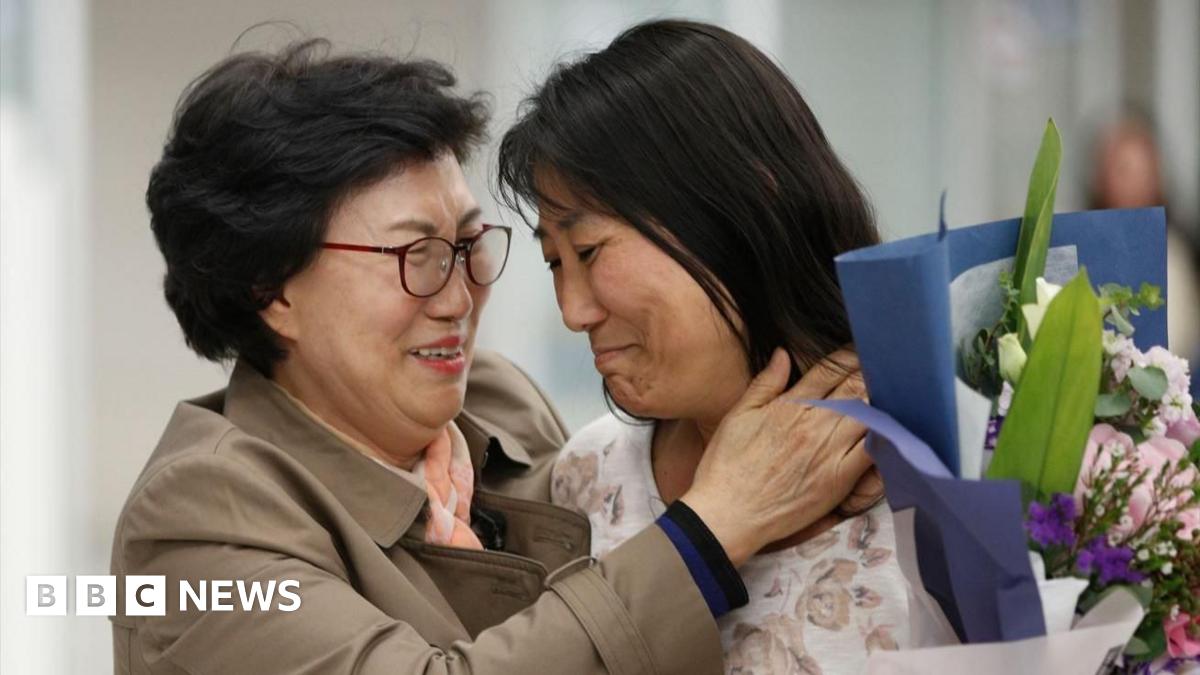The Lasting Impact: South Korea's History Of International Adoptions

Welcome to your ultimate source for breaking news, trending updates, and in-depth stories from around the world. Whether it's politics, technology, entertainment, sports, or lifestyle, we bring you real-time updates that keep you informed and ahead of the curve.
Our team works tirelessly to ensure you never miss a moment. From the latest developments in global events to the most talked-about topics on social media, our news platform is designed to deliver accurate and timely information, all in one place.
Stay in the know and join thousands of readers who trust us for reliable, up-to-date content. Explore our expertly curated articles and dive deeper into the stories that matter to you. Visit Best Website now and be part of the conversation. Don't miss out on the headlines that shape our world!
Table of Contents
The Lasting Impact: South Korea's History of International Adoptions
South Korea's history is intertwined with a significant, and often complex, narrative: international adoption. For decades, thousands of Korean children found new homes across the globe, leaving behind a legacy that continues to shape families and nations. Understanding this history requires exploring its multifaceted impact, from the societal factors driving adoptions to the lasting emotional and cultural consequences for adoptees and their birth families.
The Rise of International Adoption in South Korea:
The post-Korean War era witnessed a surge in the number of children relinquished for adoption. Poverty, illegitimacy, and the societal stigma surrounding unmarried mothers contributed significantly to this phenomenon. Orphanages, often overcrowded and under-resourced, became the temporary homes for countless infants and young children. This created fertile ground for international adoption agencies, primarily from Western countries, to operate. The process, though often shrouded in secrecy and lacking transparency, facilitated the adoption of tens of thousands of Korean children.
The Motivations Behind Adoption:
Several factors fueled this mass adoption:
- Economic hardship: Poverty in post-war Korea left many unable to care for their children.
- Social stigma: Unwed mothers faced immense societal pressure, leading them to relinquish their children.
- Western perceptions: The perception of Korean children as healthy and readily adoptable fueled demand from Western families.
This combination of factors created a system where international adoption became a seemingly viable solution, though one that came with its own set of ethical and moral considerations.
The Search for Identity: Adoptees' Journeys
For many adoptees, their journey has been marked by a profound search for identity. Growing up in a foreign culture, often with little to no knowledge of their Korean heritage, left many feeling disconnected and grappling with questions of belonging. The rise of DNA testing services and online adoptee support groups has helped bridge this gap, facilitating connections with birth families and fostering a sense of community. These resources are invaluable in addressing the lasting impact of transracial and transnational adoption.
Ethical Considerations and Ongoing Debates:
The history of international adoption from South Korea is not without its critics. Questions remain about the ethical practices of some agencies, the lack of transparency in the adoption process, and the lasting emotional toll on both adoptees and birth families. The narrative underscores the importance of ethical adoption practices and the need for greater openness and support for all parties involved.
Looking Ahead: Reconciliation and Understanding:
Today, the conversation surrounding international adoption from South Korea is evolving. There is a growing emphasis on open adoption, facilitating communication between adoptees and their birth families. Efforts are being made to improve transparency and accountability within adoption agencies. Furthermore, understanding the complex historical, social, and cultural factors that contributed to this phenomenon is crucial for fostering reconciliation and promoting healing. The legacy of international adoption from South Korea continues to shape discussions about family, identity, and the complexities of cross-cultural exchange. Further research into the long-term impacts, including mental health considerations, remains vital to fully understanding this intricate part of Korean history.
Call to Action: Learn more about the experiences of Korean adoptees and the ongoing dialogue surrounding this complex issue. Explore resources like the National Korean American Service & Education Consortium and various adoptee support groups to gain a deeper understanding of this important topic.

Thank you for visiting our website, your trusted source for the latest updates and in-depth coverage on The Lasting Impact: South Korea's History Of International Adoptions. We're committed to keeping you informed with timely and accurate information to meet your curiosity and needs.
If you have any questions, suggestions, or feedback, we'd love to hear from you. Your insights are valuable to us and help us improve to serve you better. Feel free to reach out through our contact page.
Don't forget to bookmark our website and check back regularly for the latest headlines and trending topics. See you next time, and thank you for being part of our growing community!
Featured Posts
-
 Bates Post Office Compensation Only Half The Claimed Amount
May 26, 2025
Bates Post Office Compensation Only Half The Claimed Amount
May 26, 2025 -
 Repurpose Coffee Grounds 3 Easy Gardening Hacks
May 26, 2025
Repurpose Coffee Grounds 3 Easy Gardening Hacks
May 26, 2025 -
 Andi Peters Reacts Jojo Siwa Addresses Chris Hughes Romance On Lorraine
May 26, 2025
Andi Peters Reacts Jojo Siwa Addresses Chris Hughes Romance On Lorraine
May 26, 2025 -
 Using Coffee Grounds As Lawn Fertilizer A Comprehensive Guide
May 26, 2025
Using Coffee Grounds As Lawn Fertilizer A Comprehensive Guide
May 26, 2025 -
 Uncertainty Remains Rayner Offers No Clarity On Benefit Cap Future
May 26, 2025
Uncertainty Remains Rayner Offers No Clarity On Benefit Cap Future
May 26, 2025
Latest Posts
-
 Major Truck Explosion Nearby Homes Suffer Damage Due To Propane Leak
May 28, 2025
Major Truck Explosion Nearby Homes Suffer Damage Due To Propane Leak
May 28, 2025 -
 Has The Gates Buffett Era Of Giving Ended Hundreds Of Billionaires Pledge 600 Billion
May 28, 2025
Has The Gates Buffett Era Of Giving Ended Hundreds Of Billionaires Pledge 600 Billion
May 28, 2025 -
 Alexandra Daddarios Sheer Lace Dress A Look At The See Through Ensemble
May 28, 2025
Alexandra Daddarios Sheer Lace Dress A Look At The See Through Ensemble
May 28, 2025 -
 Dior Cruise 2026 Ancient Inspiration Modern Design
May 28, 2025
Dior Cruise 2026 Ancient Inspiration Modern Design
May 28, 2025 -
 Is Harvard An Easy Target Examining Trumps Attacks On Elite Institutions
May 28, 2025
Is Harvard An Easy Target Examining Trumps Attacks On Elite Institutions
May 28, 2025
